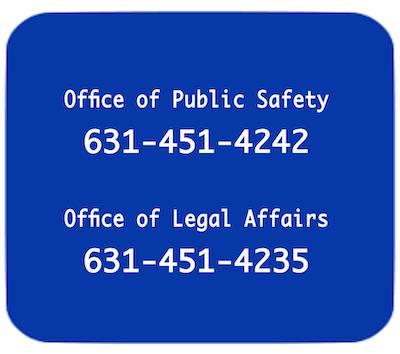Kevin McCoy
Recent federal policy changes related to immigration enforcement actions have brought some questions, confusion and concern to our attention. To help members better understand their rights and responsibilities, we draw your attention to the College Brief sent last week from Mary Lou Araneo on behalf of General Counsel Ashley Pope and Vice President for Student Affairs Patty Munsch. Please review that email, as it carefully lays out considerations of applicable college, state and federal regulations that we must uphold. We appreciate that the communication begins by affirming “As a public institution of higher education, the college remains committed to complying with the federal and state constitution, law and regulation as well as educating our students on the structures of government, political processes, history and civic engagement;” affirming students’ right to learn; and affirming the academic freedom guaranteed to faculty in Appendix B of our contract. Trump’s executive orders & Laken Riley Act Here is a partial list of immigration policies changed in President Trump’s first two weeks of office:
Immigration enforcement In the past two weeks, there has been a series of high-profile immigration raids. These raids have primarily been in municipalities that had not agreed to take on responsibility for immigration enforcement. While the stated purpose of the raids was to deport violent criminals, at least 50% of the people deported have not been charged with a crime in the U.S. or their country of origin. When conducting these raids, several U.S. citizens were arrested and held until they were able to provide proof of citizenship. These raids have frightened immigrant communities. After the raid in Chicago, attendance decreased 25% in area schools. Companies that hire immigrants are reporting that many employees are afraid to come to work. Healthcare providers are worried that people are not going to seek medical care. Local law enforcement agencies are concerned that people are afraid to report crimes. Parents have arranged emergency care for their children in case they are deported. How this impacts SCCC Since we work daily in classrooms, labs, libraries, student services offices and other spaces across our multiple campuses, we should be aware that many of our students might be nervous about coming to school. This includes students who are undocumented, students who may have undocumented relatives or immigrant students who are in the country legally but fear being arrested in an immigration raid. Faculty should not ask students about their immigration status but should be aware how the changes in immigration enforcement might affect their students. We want to highlight how our members should react if anyone approaches and indicates they are affiliated with Immigration and Customs Enforcement (ICE) or Customs and Border Protection (CBP), which are the law enforcement divisions within the Department of Homeland Security. First, as the College Brief notes, “The college complies with federal immigration laws and regulations applicable to our educational, employment and other activities as well as judicial and court orders that have the force and effect of law.” Because enforcement of federal immigration law resides with ICE and CBP, you should know that our college Public Safety’s mission is to support a safe environment for everyone on campus and thus Public Safety does not:
Second, as the College Brief reminds us, “large-scale immigration enforcement actions at schools or college campuses were reportedly rare” but, still, administration reaffirms that it will follow established protocols and NYS/SUNY recommendations that limit the role of college employees in immigration investigation and enforcement activities. Given the above, please know the following:
We know that as FA members, you are deeply committed to the college’s educational mission—to supporting people on their path of education so they can make a good living and live a good life. But at the same time it is imperative that no one gets hurt should any incidents arise. Therefore, we cite the concluding message of the College Brief in full:
We sincerely hope no such incidents arise, but we need our members to be aware of their rights and responsibilities and to be prepared just in case. |
